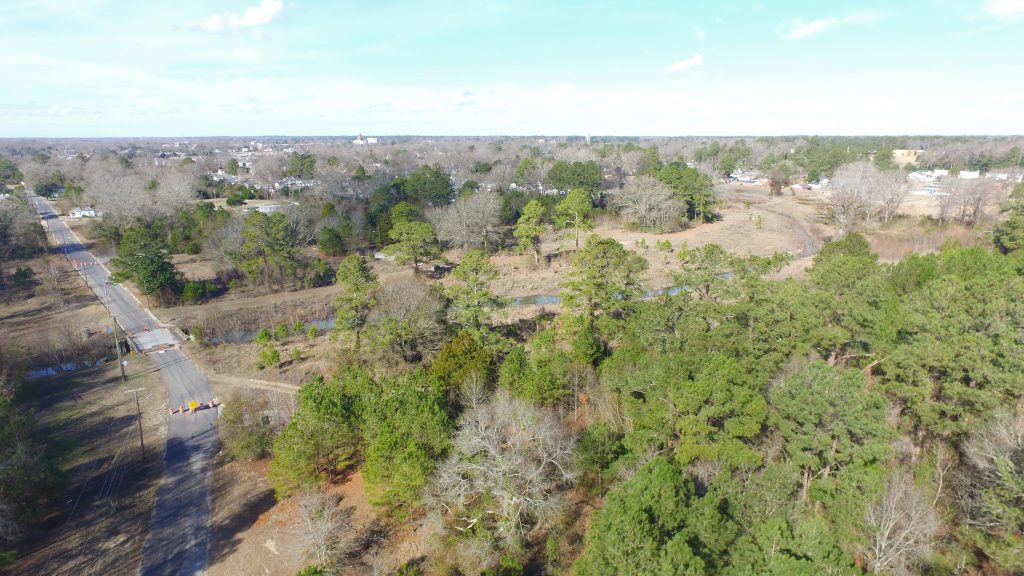
Coastal Resilience Center of Excellence (CRC) researchers and students across several North Carolina universities will be leading three primary efforts in response to Hurricane Matthew. These include: 1) studying the impacts of Hurricane Matthew on eastern North Carolina communities; 2) advising North Carolina Gov. Roy Cooper and the North Carolina Division of Emergency Management (NCEM) officials on state and federal recovery policies and programs; and 3) assisting communities develop disaster recovery plans.

Titled the Hurricane Matthew Disaster Recovery and Resilience Initiative (HMDRRI), this effort is led by Dr. Gavin Smith, who is CRC Director and Professor in the Department of City and Regional Planning at UNC-Chapel Hill. Funding of more than $900,000 for the HMDRRI is provided through three entities: The N.C. Policy Collaboratory at the University of North Carolina at Chapel Hill; the State of North Carolina through disaster-recovery legislation; and the Department of Homeland Security Science and Technology Directorate.
“We will be linking what we know about disaster recovery to inform state and federal policies and programs, and assisting communities to develop disaster recovery plans,” Dr. Smith said. “These plans will provide a roadmap for recovery, linking key community goals with a clear implementation strategy.”
Working with the state, multiple communities
NCEM and the North Carolina Governor’s Office have asked Dr. Smith to serve as a Senior Recovery Advisor in addition to Chief of the HMDRRI. He will advise NCEM, Gov. Cooper and members of his cabinet on a range of disaster recovery policy issues. Specific examples include helping the state develop a disaster recovery housing strategy, advising the state on the allocation and coordination of funding, the identification of unmet local needs and developing strategies focused on assisting local governments and disaster survivors recover from one of the worst disasters in the state’s history.
Three primary objectives of the HMDRRI are:
- Serving as point of contact for UNC system faculty, students and staff, drawing on these resources to help the state address a range of policy and technical issues as identified.
- Engaging with communities to assist them with identifying local needs and helping them develop post-disaster recovery plans.
- Coordinating activities with the Federal Emergency Management Agency’s Community Planning and Capacity Building team, which strives to assist communities collect data, assess needs and facilitate recovery planning.
Partial funding for the HMDRRI comes from the recently established North Carolina Policy Collaboratory at UNC-CH, which was established by the state legislature to utilize and disseminate the environmental research expertise of the University of North Carolina for practical use by state and local government. The Collaboratory’s Advisory Board, which is comprised of UNC-CH faculty members, recommended the use of Collaboratory funds to support Dr. Smith’s leadership in Hurricane Matthew efforts.

“The hurricane relief and planning initiative is exactly the type of project that the Collaboratory was envisioned to lead and support when it was established by the legislature,” said Brad Ives, Director of the Collaboratory. “The initiative is an outstanding example of using the power of the university through both its research capacity and student engagement to serve and assist residents of North Carolina.”
In order to fund the second and third HMDRRI objectives, the State of North Carolina General Assembly has appropriated funds for Dr. Smith and a team of recovery planning experts to assist communities in developing disaster recovery plans. The team will work most closely with heavily impacted communities, many of which have less capacity to recover due to limited staff. The teams will include a mix of recovery planning experts, faculty and students, including those involved in other CRC projects.
The Center is in the initial stages of working with the Department of Homeland Security (DHS) Science and Technology Directorate on work that is closely aligned with the objectives of the HMDRRI. The DHS-funded Flood Apex program brings together new and emerging technologies designed to increase communities’ resilience to flood disasters and provides flood-predictive analytic tools. Funds from this program could be used to assess the degree to which hazard mitigation and disaster recovery actions taken following Hurricane Floyd in 1999 (the state’s most costly disaster to date) influenced the impacts and consequences of Hurricane Matthew in 2016.

This study would assess both state and local actions in order to better understand the important, but currently understudied, interplay between these two levels of government in the context of disaster resilience. This information would be collected and analyzed in those communities in which the HMDRRI teams will be working to develop disaster recovery plans. This coordinated effort will help to apply the Apex-related findings to assist in the development of better disaster recovery plans designed to increase resilience.
Students from UNC-CH’s Department of City and Regional Planning and North Carolina State University College of Design will assist six communities: Princeville, Fair Bluff, Seven Springs, Windsor, Kinston and Lumberton.
For more information on the CRC’s involvement in Hurricane Matthew recovery, and to find resources for other UNC-CH involvement, visit the Hurricane Matthew Information page.
